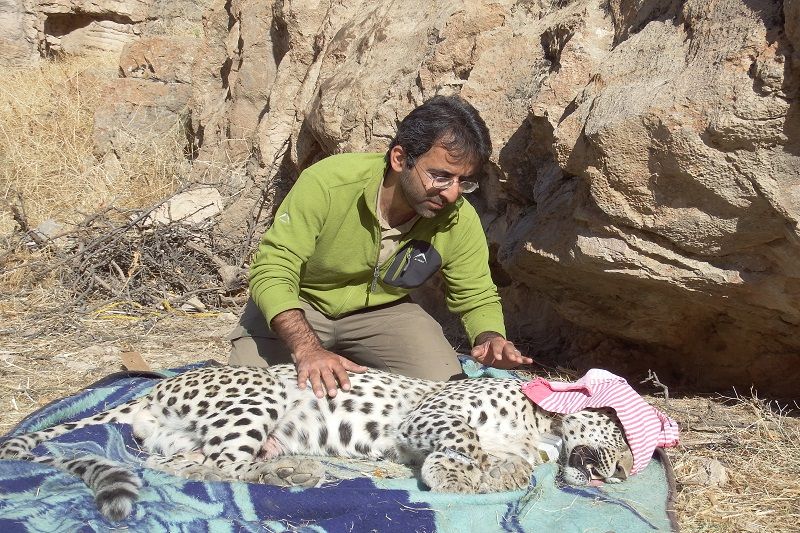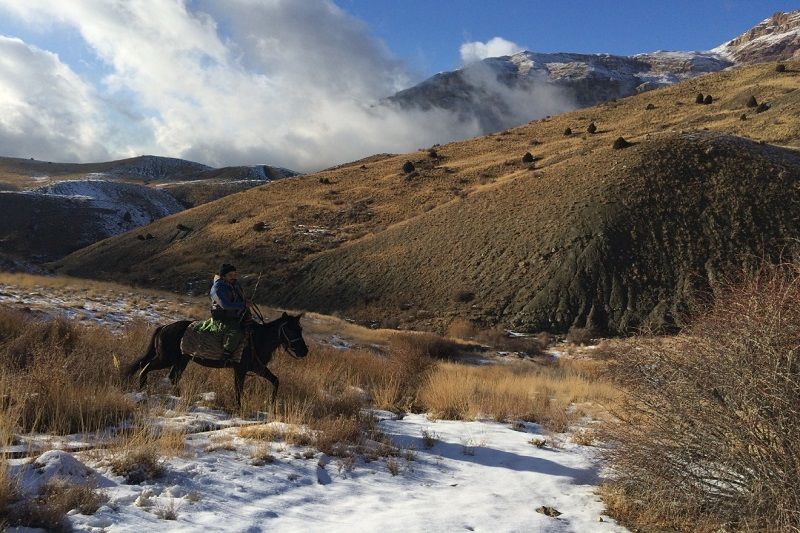We’ve heard lots of stories about the differing impacts of the pandemic across the globe. Many of us had to slow down and stay at home. Others ended up busier than ever. Mohammad Farhadinia’s team, working in the mountains of Iran, were certainly busy; “Our conservation work could not afford to pause. During 2020, our team had 12 expeditions to six reserves in different parts of Iran where leopards exist. Working closely with rangers and communities, it was important to continue as usual in order to save leopards and their habitats. In fact, all our team members in Iran got covid-19, but thankfully they all recovered and were able to carry on their work.”
Rangers, horses and motorbikes
Wildlife rangers are critical. They’re the frontline in the fight to protect so many of our endangered species globally. The rangers in Iran, like so many of their colleagues around the world, have remained at the forefront throughout the pandemic. Last year, with the help of PTES supporters, Mohammad and his team were able to continue their ranger programme, providing essential equipment for them in leopard focus areas. Twenty rangers benefitted from this help which ensured the availability of six horses and covered the maintenance of seven motorbikes for such rugged mountains. This variety of options means the rangers can go out and safely patrol different parts of the national parks, preventing poachers from accessing the more remote areas.
Reaching out and sharing research
They weren’t just busy in the field though. Mohammad’s group also took advantage of the technical advances that rapidly developed. Bespoke online training courses for rangers and conservation practitioners were quickly established. A total of three online events were organized, with a staggering 425 people attending, from across the country. Mohammad and his staff also worked with their regional partners, establishing proper rescue teams for leopards in distress. Support was provided to build transport cages for leopards in two provinces where teams are most in need of rescue equipment.
And that wasn’t all. Mohammad had a scientifically-productive year too, publishing four scientific papers on Persian leopards in peer-reviewed journals. The student associates also finished two amazing research projects on leopards, both of which are awaiting publication. The on-the-ground work is critical, but so too is ensuring any important findings are shared with the wider wildlife community and can then benefit leopards, large carnivores and communities that live alongside them across the world.
Mohammad relayed how particularly grateful to People’s Trust for the Endangered Species he and his team are. He said that “without your help we couldn’t have carried out this vital work during 2020, a period of such uncertainty and fear”.
Thank you for helping us fund this research to protect leopards in Iran.
If you’d like to support this work, please donate or set up a direct debit here today.
Find out more about our work to protect leopards in Iran:


